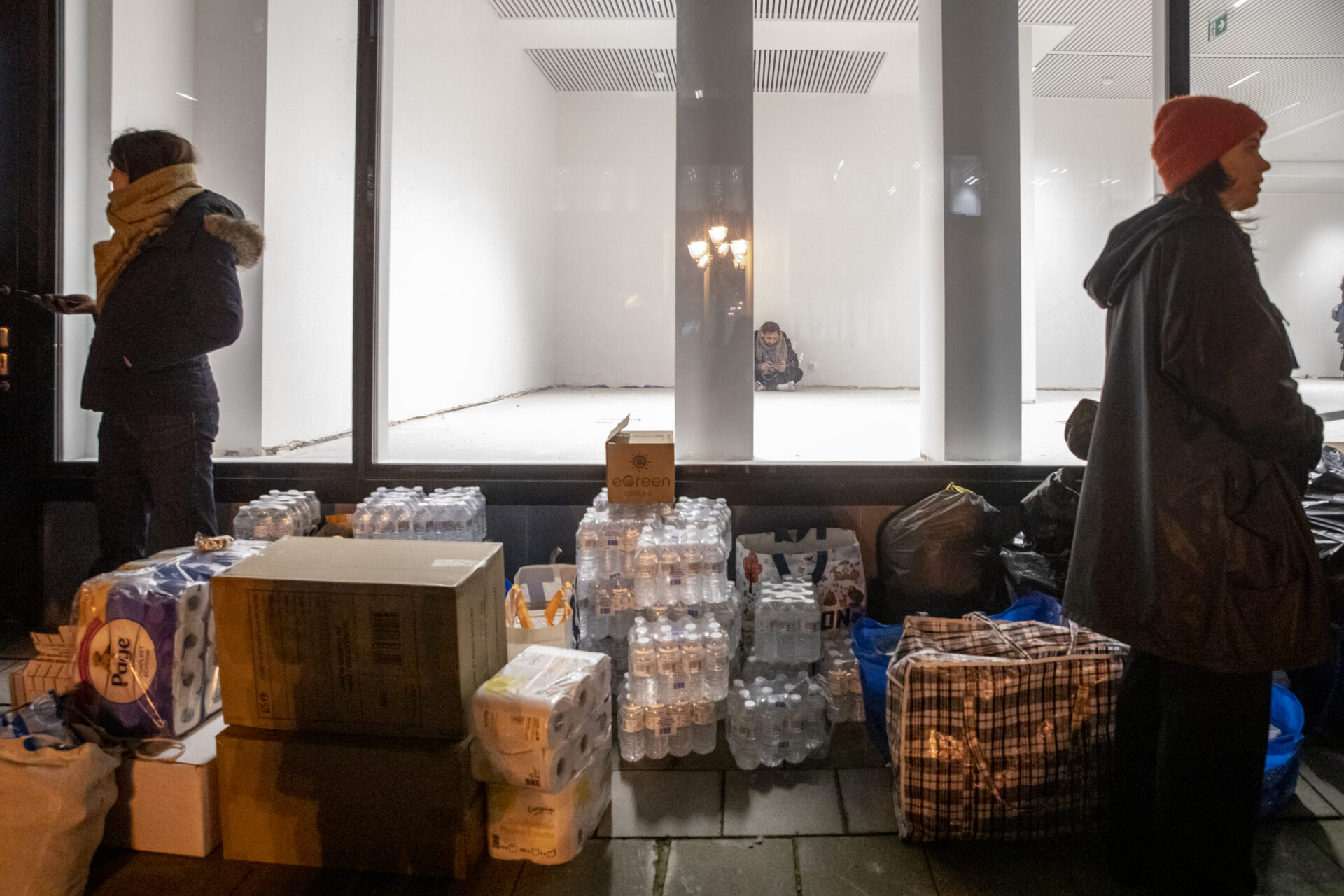For the third time in a week, asylum seekers face eviction and possible loss of possessions as police prepared to evacuate them from occupied offices of what will be Belgium's National Crisis Centre near the Brussels-Nord station.
The premises in Saint-Josse-ten-Node had been occupied on Sunday by asylum seekers and civil society organisations demanding an emergency solution from the government to fulfil its responsibility to provide refugees with shelter.
Later on Sunday, a large-scale police operation saw officers and police vehicles encircle the building. At around 22:00, a water cannon and several police dogs were also on the site. Yet as of Monday morning, no action has been taken by the police, though they are still present in large numbers.
"We are currently in contact with the owner of the building; they will decide whether or not we act and evacuate the building," the spokesperson for Brussels North police zone told The Brussels Times. "The police are still on site."
No alternatives
Sunday's protest comes after the unannounced evacuation of asylum seekers from the Canal in Molenbeek last week Tuesday and the more recent eviction of some 60 asylum seekers near the Tour & Taxis site, many of whom had moved there after being evacuated from the tents along the Canal, all of which were removed by the police.
At the latter site, there were reports that city staff had been sent by the Brussels Government to drill holes in the premises to render the building uninhabitable.
Mieke Van Laer, a lawyer who represents some 40 of the asylum seekers currently in the building, stressed that every single person had applied for asylum and therefore is entitled to shelter. Many will likely be relocated for the third time this week.
"Everywhere they go, they are being chased away. They aren't given shelter, but also are not given any alternatives. Their tents cannot be set up anywhere," she told The Brussels Times. Currently, some 2,600 people are still on a waiting list to receive shelter, many of whom are sleeping rough.
"The asylum seekers inside are of course very frightened when they see a police presence. So far the police have not been their friend."

The police refused food, drink or medicine to be delivered to the people inside the building. Credit: Belga/ Hatim Kaghat
She explained that people, including the lawyers representing the asylum seekers, were denied access to the building by police on Monday morning, while no food or medicine was allowed to be provided either. However, by Monday afternoon, NGO Serve the City was able to bring food to the people inside.
Thomas Willekens, policy advisor at Vluchtelingenwerk Vlaanderen (Flemish civil society organisation) also expressed concern about the reports that police used pepper spray, calling it a red line that “cannot and should not be crossed.”
“The police action here worries us. These are primarily people who have sought asylum and are legally entitled to shelter. This is absolutely no way to deal with these people,” he told The Brussels Times.
A framework for change?
The latest eviction operation comes days after the Federal Government announced its Migration Deal, which ministers argued would help bring an end to the asylum reception crisis. Willekens is less convinced.
"The migration deal last week only foresees new reception places by the summer, which is not a short-term solution. Instead, the resources they are now wasting should be used to find a solution for everyone so that these situations don’t repeat themselves because this is not how it should be.”
Related News
- 'No more distressing situations': Ministers agree on new migration deal
- Fedasil penalty payments for Belgium's reception crisis amount to €278.5 million
- Belgium in Brief: The reception crisis relocated, not resolved
Brussels Mayor Philippe Close has meanwhile refused to deal with the matter, saying it is a federal issue. According to Coordination des sans-papiers de Belgique (a group assisting undocumented migrants), the occupiers want to stay in the building until a solution is found for the asylum seekers here.
On Monday afternoon, Saint-Josse-ten-Node's mayor Emir Kir convened a meeting with the police, the authority in charge of the management of buildings and Belgium's Asylum Reception agency Fedasil. In a press statement, he noted he wants to ensure everyone fulfils their responsibilities.
"We are witnessing a real ping-pong, from occupation to occupation in this crisis of reception which continues without structural solutions on the horizon," he said.
"The management of reception is a federal competence, the occupied property belongs to the Federal Government, and we want to help break the deadlock."

